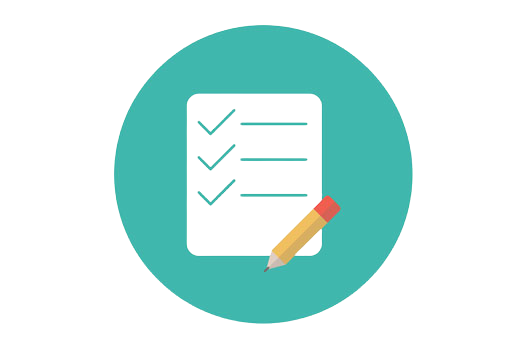Your Shopping Cart

Enroll now to become an Analytics expert with Edtia Analytics for Retail Banks Training, upgrade your skills, and lead your professional life.
Become a data-driven marketing professional by learning concepts around analytics lifecycle, data infrastructure, customer lifecycle, and digital trends at the same time going through global retail banking case studies.
Banks and financial organizations utilize analytics to handle the risk associated with their loans. This is done by monitoring data they gather on particular customers. This data can include but is not limited to Customer credit scores. Credit card utilization
With the emergence of analytics, banking has become more personal; it has a much more significant impact on shaping consumer culture. Banks can now identify and target prospective clients with more confidence as they can locate customer spending patterns and investment or loan history to convert into usable insight.
Analytics is the method of finding, decoding, and expressing meaningful designs in data. Analytics permits us to see insights and meaningful data that we might not otherwise detect.
R for data science is used in banking, telecommunications, and media.
Retail analytics provides analytical data on inventory levels, supply chain movement, consumer demand, sales, etc., that are crucial for making marketing and procurement decisions.
Customer behavior insights. The first advantage of leveraging retail analytics is that it delivers accurate and actionable insights into customer behavior. Improving Marketing ROI. Optimizing In-Store Operations. Managing the Basics. Enhancing Loyalty.
To summarize, Analytics supplies banks with more marketing force. Functional areas like Risk, Compliance, Fraud, NPA monitoring, and Calculating Value at Risk can benefit significantly from Analytics to ensure optimal performance and make crucial decisions where timing is critical.
n this module you will understand the scope of analytics applications at a retail bank and the underlying processes involved. You will also learn about the various activities around analytics. Develop a sound foundation of analytics frameworks. Learn about best practices in analytics and also understand latest trends around analytics.
In this module you will understand different stages of the customer lifecycle, Marketing challenges across different stages of the customer lifecycle, Best practices in managing these challenges, How to use analytics to address these challenges and Undertake a case study of a Taiwanese bank.
In this module you will understand the various types of data needed at a retail bank, Infrastructure required to manage data and learn about challenges and best practices in managing data.
In this module you will understand the various types of channels and their implications on data-driven marketing. Learn about customer touch-points and how they can be leveraged. Appreciate best practices around analytics and channel management.
In this module you will understand how to run data-driven acquisition programs, Best practices around analytics in the acquisition space, understand the differences between prospecting and onboarding and also learn about best practices around digital onboarding. Carry out a case study of an Indonesian bank.
In this module you will understand how to run data driven usage management programs, Explore best practices around analytics in the usage management space. Learn about challenges while implementing offers. Perform a case study of a Thai bank and Chinese bank.
In this module you will understand the customer journey and define customer experience. Learn about the benefits of having a good customer experience, How to run data-driven customer experience management programs, best practices around analytics in the customer experience management space and also understand best practices of customer experience in digital banking.
In this module you will understand how to run data driven upsell and cross sell programs. Learn about best practices of analytics in the upsell and cross sell space, tactics to increase customer penetration, approaches to Bancassurance perform a case study of an Indian bank and Chinese bank.
Understand how to run data-driven retention and loyalty management programs, Approaches to building retention strategies, trends in social media marketing. Learn about best practices of analytics in the retention and loyalty management space. Undertake a case study of an Indian bank
Understand practical challenges in implementing data-driven programs. Learn about basic principles guiding the IT infrastructure of digital banking, and also you will learn how to manage these challenges.
Edtia Support Unit is for a lifetime and will be available 24/7 to help with your questions during and after completing the Analytics for Retail Banks Certification Training.
Retail data analytics collects and studies retail data (like sales, inventory, pricing, etc.) to discover trends, predict outcomes, and make better business decisions.
To better understand the Analytics for Retail Banks Certification Training, one must learn as per the curriculum.
Consumers' growing desire to access financial services from digital channels has led to a surge in new banking technologies that reconceptualize the entire retail banking market. Technology geared toward improving retail banks' operational efficiency positively impacts the market.
If you are starting your career as a data analyst, you can expect around $69,517,
Retail banking is widely recognized as an essential factor for the economic development of a country. Retail banking helps the banking industry by providing a broad range of creative usefulness. Retail loan is calculated to have accounted for almost one-fifth of all bank credit.


Every certification training session is followed by a quiz to assess your course learning.

The Mock Tests Are Arranged To Help You Prepare For The Certification Examination.

A lifetime access to LMS is provided where presentations, quizzes, installation guides & class recordings are available.

A 24x7 online support team is available to resolve all your technical queries, through a ticket-based tracking system.

For our learners, we have a community forum that further facilitates learning through peer interaction and knowledge sharing.

Successfully complete your final course project and Edtia will provide you with a completion certification.
Analytics for Retail Banks Training demonstrates that the holder has the proficiency and aptitudes to work with Analytics for Retail Banks.
By enrolling in Analytics for Retail Banks and completing the module, you can get the Edtia Analytics for Retail Banks Training Certification.
Retail banking aims to provide customers with a full range of financial products and services and give them a one-stop window for all their banking requirements.
If you're ready for a career in a stable and high-paying field, the Retail Banks might be proper for you, and this Certification is the place to start.
